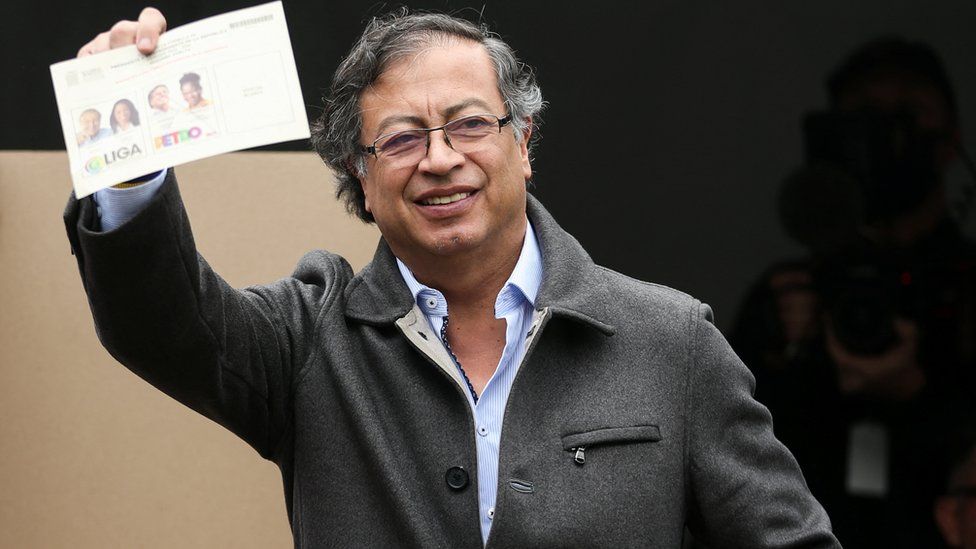Gustavo Petro wins Colombian presidential race

The former guerrilla won by a slim margin with over 50% of the votes, against 77-year-old entrepreneur Rodolfo Hernandez. In this historic win, The support Petro has garnered can be partially attributed to Colombia’s worsening socioeconomic situation, including deteriorating living conditions, made worse by the impact of the Covid-19 pandemic and the impact of the war in Ukraine. While Colombia has seen impressive economic growth in recent years, inequality rates remain among the world’s highest, with nearly half of Colombians saying that the economy is headed in the wrong direction, according to a recent Gallup poll. Petro has historically campaigned in favor of higher corporate taxes and public subsidies for the working class and the poor, a tactic that might help him draw more people from that demographic to his camp.Petro’s party and allies were already the largest bloc in the Senate — though they do not control a majority of seats. A chequered pastBorn in the rural north Colombian town of Ciénaga de Oro, Petro spent his youth in the ranks of a leftist guerrilla movement, the 19th of April Movement (M19) — founded to protest against allegations of fraud in the 1970 elections.The group was part of a so-called second wave of guerrilla movements in the country that swept the region in the 1970s under the influence of the Cuban Revolution.M19 was associated with illegal activity — including alleged kidnappings for ransom — but Petro says he carried out legal activities that aimed to mobilize people to stand up to what he called a “false democracy,” even serving as a councilman in the city of Zipaquirá. Petro was detained by the police in 1985 for concealing weapons. Shortly after, M19 launched an attack to take over Bogota’s Supreme Court building that left at least 98 people killed, including 12 magistrates (11 are still missing). Petro denies he was involved in the assault, which took place while he was behind bars.His critics have said he is too intellectual and detached — if not outright pedantic, with even his own campaign team referring to him as “the Petroxplainer,” given his tendency to lecture.To counter this, he’s been campaigning in some of the country’s most impoverished areas, where he’s been chatting with locals in conversations streamed on Instagram.Petro bet on Colombians to believe in him as an evolved politician, telling CNN that he’s managed to successfully combine his revolutionary zeal with practice public management. Next, the former guerrilla — whose nom-de-guerre Aureliano Buendia is taken from writer Gabriel Garcia Marquez’s magical realism classic, One Hundred Years of Solitude — hopes to trigger a scientific revolution in Colombia, asking economists to run through his proposals.”Magical realism comes from the heart while my scientific proposals are from the brain. To rule you need them both,” he said.Reporting contributed by CNN’s Michelle Velez.




